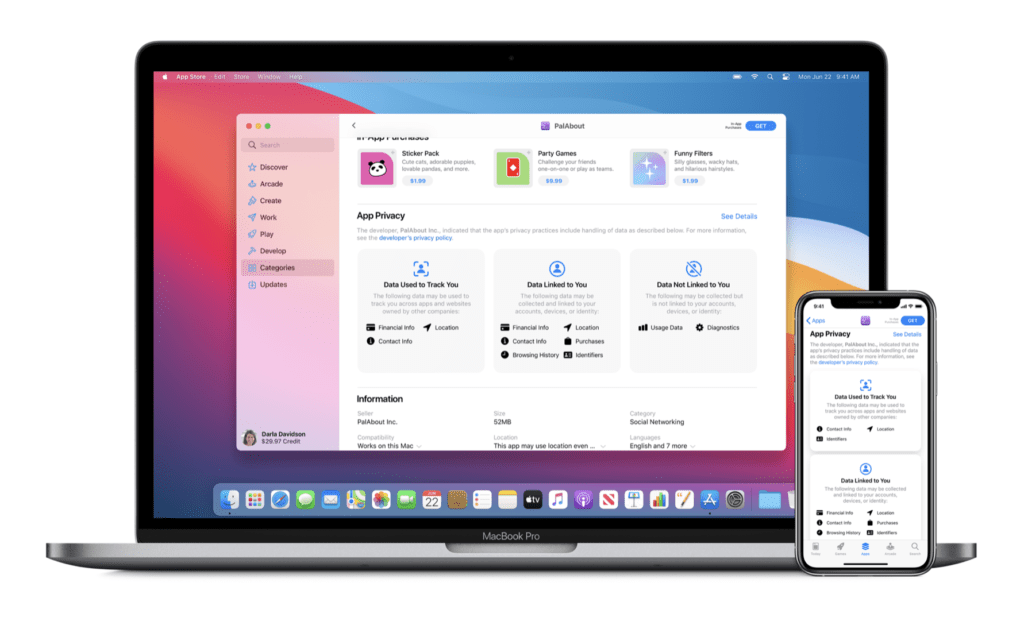From December 8th, app developers must provide privacy labels in the App Store. These are intended to help users understand what data the respective app accesses and for what purpose.
According to Apple, starting December 8, 2020, developers will have to provide more detailed privacy details within their App Store product page. This means that developers will now have to disclose a kind of "nutritional labeling" of their applications. This should give consumers a better overview of an app's privacy practices. The new privacy resource describes several important categories to consider, such as data types, data usage, data linked to users, tracking, links to privacy, and how to answer questions about app privacy. According to Apple, the goal is to better inform users about the privacy practices of each application.
App Store Connect: Data protection labels ensure more transparency
This means that every developer is obliged to provide further details in the future. Otherwise, app updates or new app submissions will be rejected. The preview is not yet available to end users. Developers, on the other hand, already have access to the new tool and a preview. The new privacy labels are part of iOS 14, iPadOS 14 and macOS 11 Big Sur and are intended to provide more transparency. They inform users which data third-party applications can access, such as location, photos and contacts. Each app will receive its own privacy report in the App Store so that users can review this information before downloading the app.
App Privacy: Each Category Requires Details
Once a developer selects a specific app in App Store Connect, there is a new menu dedicated to app privacy. From there, the platform walks the developer through the tool. First, Apple asks if the app collects user data—this includes third-party content such as advertising from other platforms. Next, the developer must select exactly what type of personal data the app collects from the user. This includes contacts, health, financial information, location, sensitive information, personal content, browsing history, and more. For each category, Apple requires details about the data collected. If you have an app that collects contact information, you must tell Apple what data that is (name, email, phone number) and whether or not you use that data to track the user across the web.
App privacy: Apple checks developer information

Apps that collect financial information should tell Apple whether the information is limited to payment information such as credit card numbers or things like salary and credit score. For apps that allow users to upload files, the developer must specify whether the app collects emails, text messages, photos, videos, or even game content. Apple will review privacy reports before they appear in the App Store. Once privacy labels are approved for an app, developers cannot change them, unless they are updated and reviewed. Apple explains the feature as follows:
The App Store will soon help users understand an app's privacy practices before downloading the app on Apple's platform. On each app's product page, users can learn about some of the types of data the app may collect and whether that data is linked to them or used to track them.
This feature will be available to users starting December 8th. For more information about the App Store’s new privacy labels, visit the Apple Developer website. (Photo by Thufir / Bigstockphoto)





